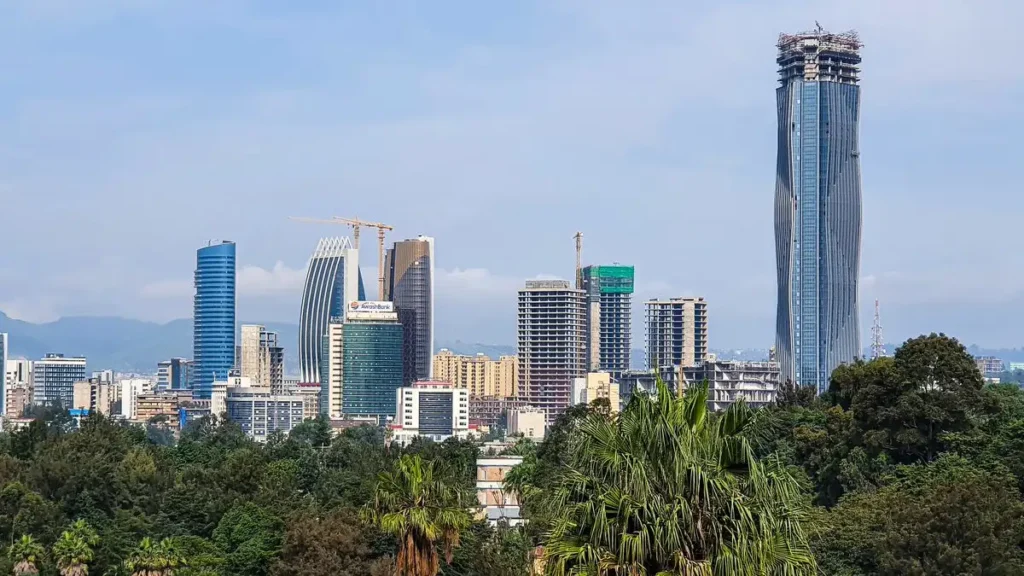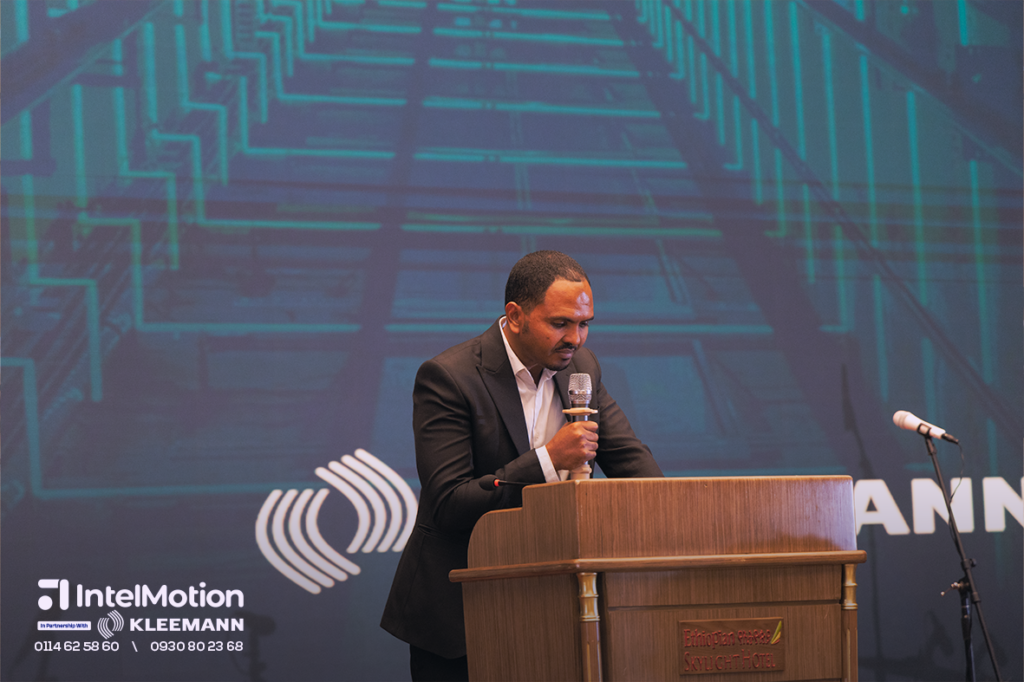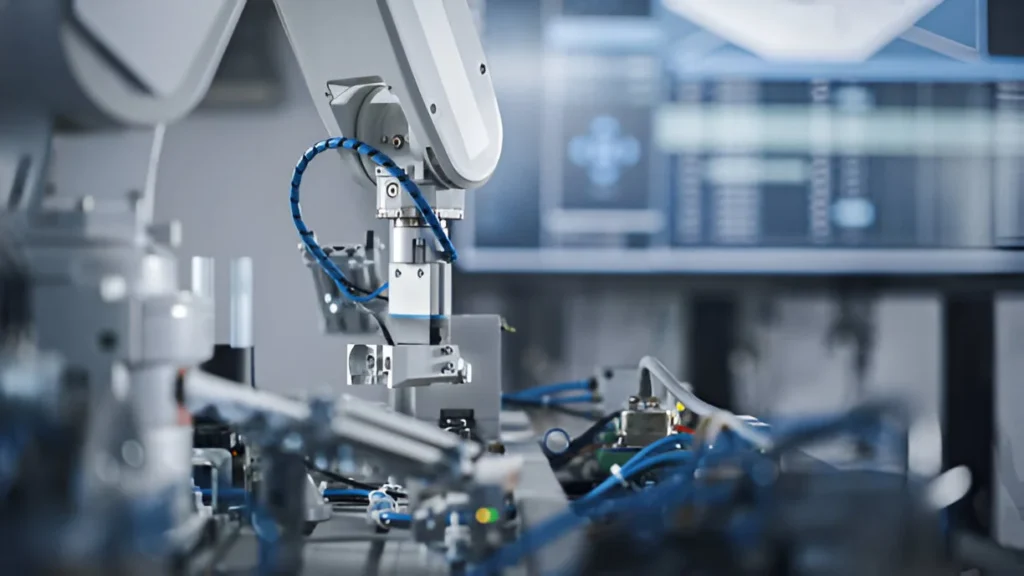In recent years, the vertical transportation industry in Ethiopia has faced significant challenges due to outdated safety standards, insufficient regulatory oversight, and the aging infrastructure of elevators and escalators. The situation has left many elevators across the country in varying states of disrepair, with frequent issues that pose risks to users. However, with the recent ratification of new safety policies and an ongoing commitment to modernization, the landscape is beginning to change. In this blog, we will explore the current state of elevator and escalator safety in Ethiopia, the importance of the newly established regulations, and how IntelMotion is playing a pivotal role in elevating industry standards.

The State of Elevator and Escalator Safety in Ethiopia
Elevators and escalators are essential components of modern buildings, providing convenience and accessibility in both residential and commercial properties. Yet, in Ethiopia, the safety of these systems has long been compromised due to several factors:
- Inadequate Maintenance: Many elevators suffer from irregular maintenance, leading to frequent malfunctions. Building owners, particularly those managing older properties, often neglect necessary repairs due to the associated costs. This can result in elevators being shut down or restricted to certain floors (e.g., only serving odd or even-numbered floors), further limiting their functionality.
- Lack of Regulatory Oversight: For years, Ethiopia’s governing bodies responsible for overseeing elevator and escalator safety have been largely inactive. This lack of enforcement has allowed unsafe practices to persist, with elevators often operating without proper safety measures or routine inspections.
- Improper Elevator Hygiene and Safety Measures: In addition to mechanical issues, there is a widespread lack of proper hygiene and safety measures within elevator cabins. This includes poorly maintained interiors, inadequate ventilation, and malfunctioning safety features such as emergency brakes and communication systems.
The New Safety Regulations: A Step Forward
Recognizing the urgent need to address these issues, the Ethiopian government recently ratified a new set of safety regulations aimed at improving the standards of elevator and escalator systems across the country. These regulations, which align with the broader corridor development project in Addis Ababa, represent a significant shift in policy and enforcement. Key aspects of the new regulations include:
- Mandatory Elevator Installation: All commercial buildings with more than three floors are now required to install elevators. This mandate is particularly significant given the rapid urbanization and commercial growth in Ethiopia’s cities, ensuring that buildings are equipped to handle increased vertical traffic.
- Regular Inspections and Maintenance: The new regulations also introduce mandatory inspections and maintenance schedules for all elevators and escalators. Building owners are now legally obligated to adhere to these requirements, which are designed to prevent the neglect and disrepair that have plagued the industry in the past.
- Enhanced Safety Standards: The regulations stipulate stricter safety standards for elevator and escalator systems, including the implementation of advanced safety features, proper hygiene practices, and compliance with global safety norms.
While the ratification of these regulations marks a crucial step forward, their successful implementation will take time. The industry must undergo significant changes to meet these new standards, and this is where IntelMotion is leading the way.

IntelMotion’s Commitment to Safety and Training
As one of the leading companies in Ethiopia’s vertical transportation industry, IntelMotion is deeply committed to improving the safety and reliability of elevators and escalators. Partnering with Kleemann, a global leader in lift technology, IntelMotion is not only implementing the latest safety innovations but is also investing in the future of the industry through education and training.
IntelMotion Kleemann Training Institute
Understanding that lasting change requires skilled professionals, IntelMotion has established the IntelMotion Kleemann Training Institute, a pioneering initiative aimed at addressing the skills gap in Ethiopia’s lift engineering industry. The Institute’s mission is clear:
“At IntelMotion Kleemann Training Institute, our mission is to empower graduates who have faced challenges in competing in the job market. By providing them with the right skills and comprehensive training, we aim to transform their careers and open new doors of opportunity in the lift engineering industry. We are committed to ensuring that our trainees are equipped to meet the highest standards of safety, reliability, and innovation, setting them on a path to success both locally and globally.”

Through state-of-the-art facilities, experienced faculty, and a curriculum designed to meet global industry standards, the IntelMotion Kleemann Training Institute is poised to become a cornerstone of Ethiopia’s efforts to modernize its vertical transportation systems. By equipping a new generation of engineers with the knowledge and skills necessary to maintain and improve elevator safety, IntelMotion is ensuring that the industry’s future is in capable hands.
The Importance of Adhering to Safety Standards
As Ethiopia continues to develop, the importance of maintaining high safety standards in elevator and escalator systems cannot be overstated. Safe and reliable vertical transportation is essential for the efficient functioning of modern buildings, particularly in densely populated urban areas like Addis Ababa.
Adhering to safety standards not only protects users from potential harm but also contributes to the overall reputation and success of commercial properties. For building owners, investing in elevator and escalator modernization and maintenance is not just a legal obligation—it is a commitment to the safety and satisfaction of their tenants and customers.
Conclusion
The elevator and escalator industry in Ethiopia is at a critical juncture. With new safety regulations in place and the active involvement of industry leaders like IntelMotion, there is an opportunity to bring about meaningful change. By prioritizing safety, investing in modernization, and fostering a skilled workforce through initiatives like the IntelMotion Kleemann Training Institute, Ethiopia can ensure that its vertical transportation systems are safe, reliable, and ready to meet the challenges of the future.
IntelMotion remains dedicated to driving this change, working closely with government bodies, building owners, and industry professionals to elevate the standards of elevator and escalator safety across Ethiopia.


